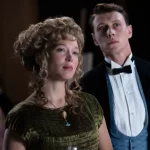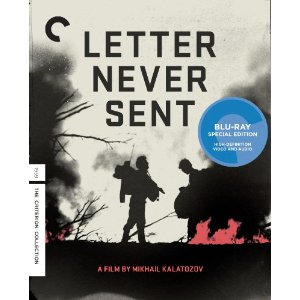Scott’s Movie Journal #1

Not going to be too ambitious with these and promise them once a week – hence the numbering rather than dating – though I’ll sure try. Some will just be slightly-reworked or full-on copy-and-pasted Letterboxd entries, some will be x-clusive to here. Few will be reviews, just more whatever I happen to think about – cinematically, culturally, personally, etc.
Let’s start with Thanksgiving weekend.
Hannah and Her Sisters (Woody Allen, 1986)
(rewatch; last seen about a decade ago)
The finest film I’ve seen from the year I was born remains quite a thing indeed. I’ve watched or rewatched about a dozen of Allen’s films over the course of the pandemic, finding them an ideal late-night comfort when I want something with a bit of artistic integrity without really challenging myself. I still have about a dozen I’ve not seen at all, but I should be surprised if one emerges quite as quintessentially Woody Allen as this. The jokes come cheap (Wonderbread and mayonnaise alongside Catholic icons) and profound (the can opener), the characters richly-textured and specific, the milieu a sort of privileged bohemia, the environment one that urges obsessive thinking, and none of it feeling derivative or oppressively nostalgic, which much of even his better films sometimes do.
Of course, these days, a viewer like myself brings their own nostalgia, for small book and record stores, for a cinematic culture that could support and reward these sorts of films, for 35mm, for all those analog things of the past, and so on.
I get why Allen disliked the ending, which was somewhat forced upon him, and which he was probably more willing to attempt after refusing the similar treatment for The Purple Rose of Cairo, which underperformed at the box office on a larger budget (Hannah made three times its budget at the box office and won three Academy Awards). Whatever Allen’s feelings towards it though, it did give him leeway to embark on the possibly-boldest stage of his career, one with fewer and fewer jokes and smaller and smaller box office returns, though many fans would count at least one of them amongst their favorites (I’ve got three – this, Radio Days, and Another Woman).
Happiest Season (Clea DuVall, 2020)
(first view)
A bit steelier than I’d expected – the climax skirts genuine danger, and while one suspects things will turn out all right, it gets there honestly rather than reflexively. There are certain things said that will take some working-through, but that doesn’t make them dealbreakers.
This also gets very well, through a queer lens but tapping into a wider experience, at the sensation of seeing your significant other in an environment very familiar to them but not at all to you, the way it opens up different facets of their personality, and how they almost unconsciously change to suit their surroundings. I especially liked, too, the way Mackenzie Davis adapted to each space, almost physically transforming herself in a way that suggested her character was unconscious of it.
I’ve seen a lot of objections to this film that essentially come down to having a beef with the unpleasantness of many of the characters, to which I can only suggest that viewer watch more romantic comedies, arguably the finest commercial genre with the agility to explore the routine narcissism and pettiness that so often dominates our lives.
Girlfriends (Claudia Weill, 1978)
(rewatch; last seen three years ago)
I adore this film, and Criterion’s new edition of it is a real treat top to bottom, sporting a spiffy new transfer and – from what I’ve been able to explore thus far – some really stellar supplements. There isn’t an ounce of this film that feels false, every character so well-rounded yet completely unpredictable, just as people should be.
La Dolce Vita (Federico Fellini, 1960)
(rewatch; seen in full at least three times over the past 13 years, plus scattered bits and pieces)
Fellini’s whole set-up here is ripe for easy cynicism and dismissal, but the film is anything but cheap; it’s tender and rich and heartfelt, romantic even…just ruthlessly so. Plenty of other films were made in this milieu, plenty more have tried to recapture it, but none could. You’d have to have been there, you’d have to be Fellini and Mastroianni and have a tight group of screenwriters who had honed their collaboration together over the course of a decade-plus and have the seemingly-unending Cinecitta backlot at your disposal. And, having that, you’d still have to have such uncommon clarity about the time in which you were living that you’d virtually define the culture for the next decade, and, knowing that, you’d have to have the quality of your craft down to fine that a series of mostly-disconnected vignettes could serve as to emotionally distill all of this into a commercial vehicle.
This is a breathtaking film that never gets less mysterious or less compelling, each corner of Marcello’s mind a little more broken than the last.
Zodiac (David Fincher, 2007)
(rewatch; last seen ten years ago)
This viewing sort of cured me of thinking this might be Fincher’s best; I may even prefer The Social Network now, with Gone Girl and Benjamin Button still ahead of that. I think it suffers a bit in juggling multiple protagonists, never quite asserting the unsolvable mystery itself as the dominant force that guides it. The film is missing the hidden spectre that Fincher’s films hereafter will all share, and there are times when it tries too hard to be a straightforward March release thriller more than is called for (the whole sequence with the movie poster guy is brilliantly-mounted but completely unmotivated). But I digress, because this can all sound like I’m slagging a film I still like very much. It does have an interesting quality of subverting expectations, quietly stringing the viewer along until suddenly a decade’s gone by and you’re still trying to fit all the pieces together alongside the characters. The film does this especially well; I can’t follow any mysteries, but I can practically sing along with this one.
Lovers Rock (Steve McQueen, 2020)
(first view)
Not a lot to say other than this is a real vibe, and a very good one. There are some interesting factors poking at the sides of it – about toxic masculinity, about racism, about class issues – that give it a broader texture, and which serve to heighten the sweet bliss of grooving ’til dawn.
La Strada (Federico Fellini, 1954)
(rewatch; last seen 12-13 years ago)
I didn’t particularly care for this one when I was doing my first run through the Essential Art House 12-13 years ago, and while I still don’t value it nearly as much as the Fellinis to come, I see a little more clearly what’s so affecting about it. Looking back, I think it was a little hard to swallow the sympathy we’re supposed to have for Zampanò by the end – at least he’s sad about having slowly, over the course of months-if-not-years, killed Gelsomina, woo, good for him – and to a certain extent it still is. About once a week we go through another round of discussing whether it’s appropriate for a piece of fiction to ask us to sympathize with an abusive man, and while those discussions can become damn reductive, I’m not…well…unsympathetic to them either.
Ultimately – and this is what I thought about a good deal during the course of the film – it comes down to sort of secular ideas about sin and transgressions. For the secular world, it is necessary to sort of “rank” sins, to dole out punishment based on the degree of wrongdoing, and this necessary legal thinking has trickled down into the way we think about each other in relation to ourselves. There’s a notion that it’s acceptable to hold ourselves as superior to people like Zampanò because we don’t beat, abandon, and psychologically torment our spouses, and I don’t want to make out like it isn’t without benefit to condemn people like him. But we don’t need to “condemn” Zampanò himself; after all, he isn’t real.
And this is where my thinking switches, and I think back on my Catholic teaching, which Fellini, and damn near everyone involved with this film, would have shared, only – one assumes – a good deal harsher in 1930s Italy than in 1990s Portland. For Catholics, the range of grave sins is so vast that sex outside of marriage and masturbation are roughly on par with rape and murder. So one’s identification with an abusive maniac, who in our contemporary understanding may be the greater offender, suddenly becomes a much easier leap to make. For myself, when confronted with these sorts of protagonists, I try not to let myself off the hook for not being a total monster, but rather to think of the times I’ve been unkind to my wife, the hurt that’s caused, and the sorrow I feel afterward. Art helps to magnify our emotions, to draw them out on a grand scale and craft a drama to fit the size they hold within us. And then, it becomes a little bit easier to identify with Zampanò, and to see the beauty of this film.
The Front Page (Billy Wilder, 1974)
(first view)
Come to see one of the fastest comedies ever written played at half-speed, stay for…I dunno, the scattered homophobia? Little to recommend it going in, and even less coming out; not only is it a far lesser comedy than His Girl Friday, it doesn’t have an ounce of that film’s moral and emotional clarity.
The key distinction comes in Mollie’s first big scene, when she tears apart of the press for the lies they’ve printed about her, and they contend themselves with their cheap cracks until she leaves the room damning them. Hawks hangs on this moment, forcing the men (and us) to sit in silence, letting their loneliness and guilt sink in for a second. Wilder has the press basically shove Mollie out laughing, and cuts immediately. For Hawks, these may be clever guys, but they’re really just filling out the void in their lives, too cynical to live amongst decent people. But Wilder – whom I’ve long felt Sarris described accurately as “too cynical for even his own cynicism” – is practically one of them, and only sees a bunch of good ol’ boys having a laugh. He doesn’t see Mollie, not really.
A Serious Man (Joel and Ethan Coen, 2009)
(rewatch; saw twice theatrically, may be first view since then)
This has big “we just won the Oscar, pay us” energy, and leave it to the Coens to go even bleaker at their great moment of triumph.
There Will Be Blood (Paul Thomas Anderson, 2007)
(rewatch; saw three times theatrically and once on DVD roughly ten years ago)
There was a tendency, right after The Master, to posit this as the start of a new period in Anderson’s filmmaking – the partnership with Jonny Greenwood and the reliance on historical settings in some ways suggest it, but I find that a little incomplete. I see it instead as the final film in the first movement of his career, or something entirely unto itself. For all its confidence, for all the bravado of the filmmaking, I can still see the younger PTA in there, eager to prove himself and cement his place in the industry that had to that point had an uneasy relationship with him. His next three films would prove much more confident in the degree to which they shed or subvert traditional narrative and catharsis, utilizing the instincts that guide much of the second half of this film to form the whole shape of his movies and unconcerned with paving his way there.
Which is not to denigrate this film at all; especially after revisiting Magnolia a few months ago, I adore the “early Anderson,” the kid with buckets of talent and the world to prove it to. Moment to moment, brick by brick, there are only a handful of films from the 21st century as brilliantly and expansively constructed and executed as this. Far from feeling hermetically sealed as a result, it is a machine designed to engineer chaos. The only other contemporary filmmakers operating at this level are saddled with lesser scripts, or haven’t Anderson’s ambition to perfect them by breaking them. The second half of this film – basically everything after the derrick explodes and H.W. loses his hearing – is truly unhinged, as though Anderson realized the film could have very well ended there, so the only thing left to do was to break it apart and watch it crumble.
Ammonite (Francis Lee, 2020)
(first view)
Not aided by revisiting There Will Be Blood hours earlier, which, as noted above, could easily have ended an hour into itself, and then spends the rest of the time dealing honestly with the ramifications of what it’s wrought. Ammonite has the exact opposite quality, taking two full hours to reach what should be the halfway point. The “ambiguous” ending has too long been a crutch of storytellers with no story to tell, filmmakers who too often discount how much story there really is in Antonioni or Haneke or Sofia Coppola or whoever else they’re trying to imitate. At least provide more than a couple compelling scenes or some more interesting dialogue or an image that makes some impression of some kind.































The lead characters in La Strada weren’t actually married.